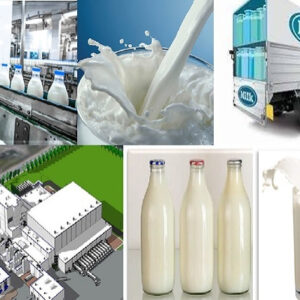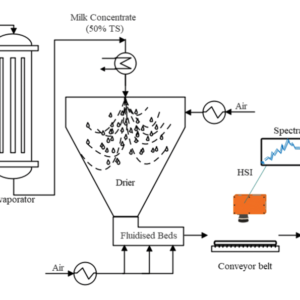Industry Overview
Ghee holds a central place in Indian households and cuisine, being a versatile dairy product with immense cultural, culinary, and nutritional significance. The demand for high-quality, pure ghee is on a steady rise due to increasing health consciousness and the popularity of traditional food. The ghee market caters to a wide range of customers, including households, restaurants, and the Ayurvedic sector. With advancements in processing techniques and packaging, entrepreneurs can tap into both domestic and international markets, making ghee production a lucrative and sustainable business option.
Government Subsidy Schemes for Ghee Manufacturing Business
The government actively promotes the dairy processing industry, including ghee manufacturing, through multiple subsidy schemes:
- Dairy Processing and Infrastructure Development Fund (DIDF): Provides financial assistance for setting up processing units and improving infrastructure.
- Rural Development Schemes: Encourage small-scale enterprises in rural areas with subsidies up to 25%-33%, depending on the entrepreneur’s category.
- PMFME Scheme: Supports technology adoption, branding, and marketing of value-added dairy products like ghee.
These schemes help in reducing capital investment and increasing the profitability of ghee manufacturing businesses.
Eligibility Criteria for Ghee Manufacturing Business Subsidy
To access subsidies, ghee manufacturers must adhere to specific requirements:
- Business Registration:
- Register under a legal entity such as a proprietorship, partnership, or private limited company.
- Obtain an FSSAI license to ensure compliance with food safety regulations.
- Detailed Project Report (DPR):
- Submit a DPR that includes production plans, raw material sourcing, and financial viability.
- Location:
- Units established in rural or semi-urban areas receive preference under certain schemes.
- Financial Health:
- Provide financial documents, including bank statements and past IT returns.
- Hygiene Standards:
- Maintain compliance with FSSAI norms regarding cleanliness, production, and packaging standards.
Adhering to these criteria ensures eligibility for government incentives and fosters business growth.
To apply for the Food Processing Scheme, the following mandatory documents are required for new enterprises (Individuals/Firms) as outlined in the manual
1. PAN Card of concerned/all promoters.
2.Aadhaar Copy & Photo of all promoters/guarantors.
3. Address Proof: Any of the Officially Valid Documents (OVD) such as:
o Utility bill (not more than two months old) from any service provider (Electricity, telephone, post-paid mobile phone, piped gas, water bill).
o Property or Municipal tax paid receipt.
o Ration Card (Individual).
o Driving Licence
o Aadhaar Card.
o Voter ID Card.
4. Details of the site where the unit is to be established, including whether it is owned/rented/leased, along with proof (Lease/rent agreement should be for more than the loan repayment period).
5. Photocopy of Bank
6. Estimates and Quotation of all capital expenditure and machinery and equipment to be purchased. Statement/Bank Passbook for the last 6 months.
For existing enterprises with a turnover of less than 1 crore, similar documents are required, including PAN Card, Aadhaar, address proof, and site details.
If you need more specific information or additional documents, please let me know!















